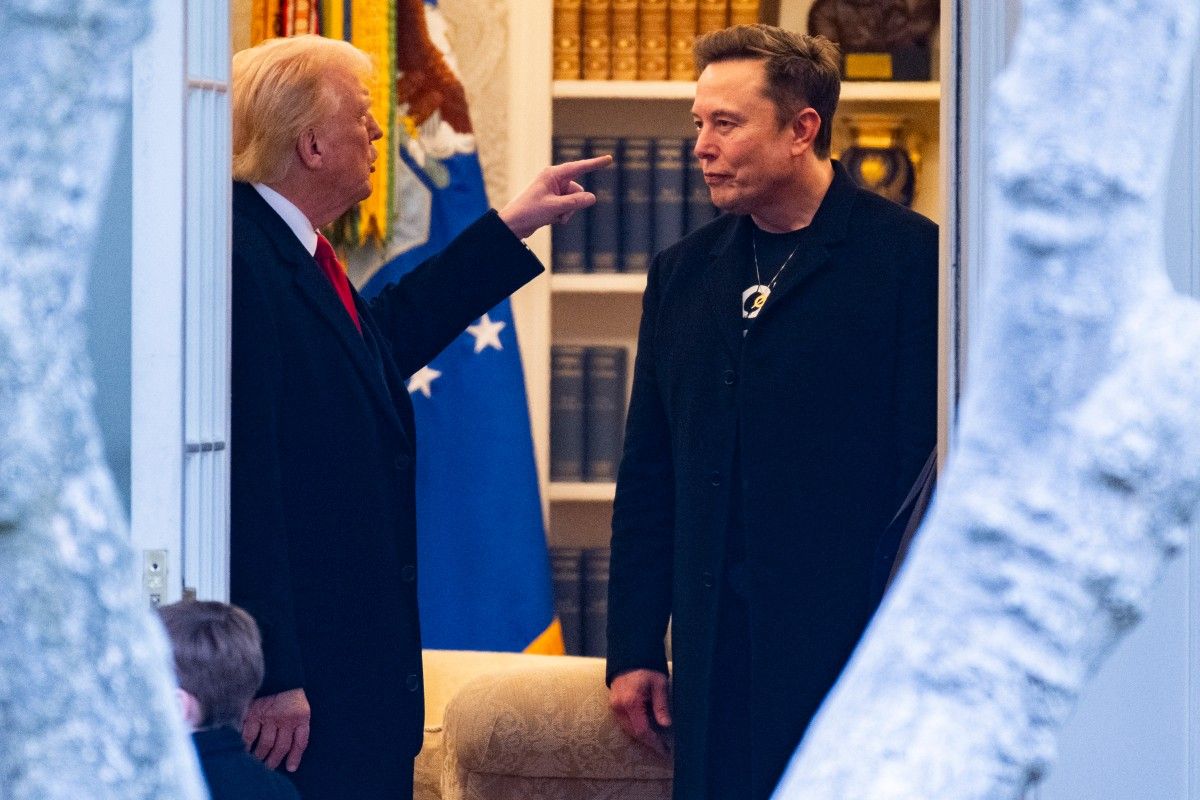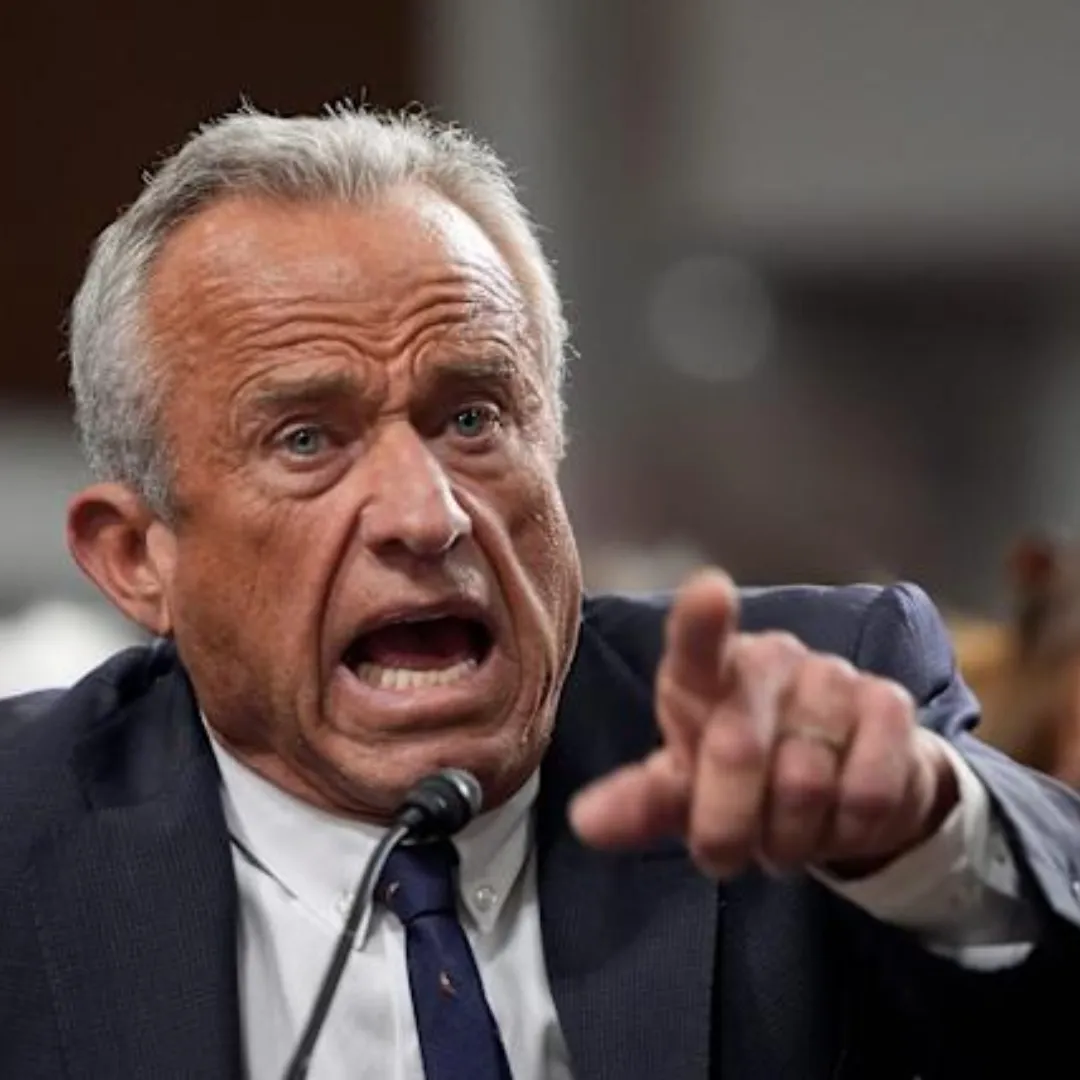
As President Donald Trump reaches his 100th day back in office, he’s taking time to celebrate his achievements at a rally in Michigan.
While a moment of reflection and celebration may seem fitting, the first 100 days of Trump’s return to power have been marred by a series of political blunders, controversial decisions, and growing discontent among both the public and key political allies. His approval ratings have plummeted, and the economic situation has proven particularly challenging, overshadowing the early accomplishments he sought to highlight.
Despite the fervent support of his base and his ongoing control over the Republican Party, several missteps have significantly complicated his return to office, making it difficult for him to fully capitalize on his political capital. Let’s take a closer look at five of the most significant mistakes Trump has made during his first 100 days, which have not only diminished his standing but also created significant political fallout.
The most striking blunder of Trump’s administration so far has undoubtedly been his controversial and aggressive approach to international trade, specifically his announcement of sweeping tariffs on dozens of nations.
On April 2, dubbed “Liberation Day,” Trump introduced far-reaching tariffs that went much further than anticipated, triggering an immediate market backlash. The financial markets reacted swiftly to the announcement, with significant drops in stock prices, bond markets signaling alarm, and fears of a global trade war looming large.
The tariffs were part of Trump’s long-standing criticism of trade deals he believed were unfair to the U.S., and his advisers, including Peter Navarro and Steve Bannon, had long encouraged such measures to bring more favorable trade terms for the U.S.
The immediate fallout from these tariffs was severe. Other nations quickly retaliated, announcing plans to implement their own tariffs on U.S. goods, further escalating tensions and threatening the global trading order.
Within the U.S., businesses, especially in manufacturing and retail sectors, began warning of price hikes and supply shortages that would likely follow. Economists predicted that the tariffs would have a significant inflationary impact, raising costs for consumers and further undermining Trump’s economic policies.
Despite the mounting pressure, Trump initially doubled down on his position, only to backpedal a week later when the financial markets continued their decline. On April 9, Trump suspended many of the tariffs for 90 days, trying to alleviate the damage.

This reversal, however, came too late to salvage his credibility on economic issues. His standing among voters, particularly on the economy, suffered considerable damage. A Fox News poll found that a majority of Americans disapproved of his handling of the tariffs, marking a substantial decline in his political capital on one of his traditionally strongest issues.
Another political miscalculation came in the form of Trump’s decision to give Elon Musk significant prominence and influence within his administration. Musk, who had spent millions supporting Trump’s 2024 election campaign, has become a key figure in Trump’s push to reform government operations through the creation of the Department of Government Efficiency (DOGE).
While Trump’s appreciation for Musk’s support may have been understandable, giving Musk real power within the administration has proven to be a highly questionable decision. Musk has become a divisive figure, both within Trump’s orbit and among the broader American public.
Public polling consistently shows that Musk’s favorability ratings are far below those of other political figures. A recent Washington Post/ABC News poll indicated that 57 percent of Americans disapproved of Musk’s role in the administration, while only 35 percent approved.
An Economist/YouGov poll revealed that Musk’s personal favorability was even lower, with 55 percent of Americans viewing him unfavorably. The unpopularity of Musk, combined with his often erratic behavior, including making unverified claims and engaging in self-promoting antics, has undermined the effectiveness of DOGE and has become a political liability for Trump.
Furthermore, Musk has clashed with prominent figures within Trump’s administration, including Secretary of State Marco Rubio and Treasury Secretary Scott Bessent, further complicating the situation. Trump’s embrace of Musk has led to significant political damage, as many voters view Musk as an untrustworthy and unpredictable figure, casting doubt on the credibility of Trump’s reform efforts.
One of the issues that Trump has long touted as a political strength is immigration. During his 2024 campaign, Trump’s hardline stance on border security and deportation policies was a key issue that resonated deeply with his base.

However, his administration’s approach to immigration has proven to be more controversial than expected. Despite winning significant approval for his border security efforts, Trump’s handling of deportations has drawn substantial public backlash.
Polls conducted by Fox News in April revealed that while 55 percent of voters approved of his performance on border security, his approval dropped significantly on issues related to immigration and deportations. Only 47 percent of respondents approved of his immigration policies, and just 45 percent supported his approach to deportations.
The backlash against Trump’s hardline deportation policies has been intensified by several high-profile legal challenges. One of the most contentious cases has involved the deportation of Venezuelan nationals under the Alien Enemies Act, a 1798 law that Trump invoked to expedite the removal of individuals from the U.S.
While this action has drawn legal challenges and criticism from civil rights groups, it is not the only instance that has sparked controversy. Another case that has fueled opposition is the deportation of Kilmar Abrego Garcia, a Maryland resident who had been living in the U.S. for several years with his wife and children, all of whom are American citizens.
The deportation was carried out despite an immigration court order that said Garcia should not be removed to El Salvador. These incidents have raised broader concerns about Trump’s respect for the rule of law and due process, with many voters questioning whether the administration is willing to disregard judicial rulings in its pursuit of hardline policies.
Beyond domestic policy, Trump’s first 100 days have also been defined by his attacks on cultural and political institutions, further alienating key segments of the electorate.
In an effort to consolidate his power, Trump has waged a campaign against law firms that represented his political enemies, attempted to strip security clearances from critics, and made moves to limit the influence of colleges and universities that he accused of not doing enough to combat antisemitism.
His interactions with prestigious institutions like Harvard and Columbia have raised alarms about his interference in academic freedom, leading many to question whether Trump is abusing his power as president to target individuals and organizations that challenge him.

The fallout from these actions has been considerable, with many liberals and moderates expressing concern about Trump’s use of presidential power to target political opponents and critics. A CNN/SSRS poll released in April found that a majority of Americans, 54 percent, expressed “no real confidence” in Trump’s ability to use the powers of the presidency responsibly.
Only 25 percent of respondents said they had “a lot of confidence” in his ability to wield presidential power, while 21 percent expressed “some confidence.” These polling results reflect the deepening divide in American politics, with many voters feeling increasingly disenfranchised by Trump’s leadership style, which they view as divisive and authoritarian.
Trump’s foreign policy has also been a point of contention, particularly in relation to the war in Ukraine. While Trump initially promised that he could bring an end to the war in a single day, his administration’s handling of the conflict has raised serious concerns.
In a high-profile clash in February, Trump and Vice President Vance criticized Ukrainian President Volodymyr Zelensky, accusing him of being insufficiently grateful for American support. This public confrontation, which made headlines around the world, reflected a deeper, more troubling shift in Trump’s foreign policy approach.
In subsequent weeks, Trump appeared to blame Ukraine for provoking Russia’s aggression, suggesting that Ukraine was at fault for initiating the conflict. This line of thinking has not only alienated international allies but also drawn condemnation from voters who view U.S. support for Ukraine as a critical aspect of American foreign policy.
Polls have shown that Trump’s approval ratings on foreign policy, particularly regarding Ukraine, have suffered significantly. A recent New York Times/Siena College poll found that only 35 percent of registered voters approved of Trump’s handling of the war in Ukraine, while 56 percent disapproved.
This marks a sharp contrast to Trump’s earlier foreign policy successes, such as his tough stance on China and his attempts to broker peace agreements in the Middle East. The shift in public opinion reflects a growing skepticism about Trump’s ability to lead effectively on global issues, especially when it comes to complex diplomatic and military matters.

As President Trump reaches his 100th day in office, it is clear that his early presidency has been defined by a series of significant political missteps. While his base remains solidly behind him, his approval ratings have dropped precipitously, and his leadership on key issues such as the economy, immigration, and foreign policy has been marked by controversial decisions and miscalculations.
As Trump prepares for his rally in Michigan, the political challenges he faces are undeniable. Moving forward, Trump will need to address these mistakes and recalibrate his approach if he hopes to regain momentum and strengthen his standing ahead of the 2024 election. The next phase of his presidency will depend on whether he can recover from these self-inflicted wounds and regain the trust of a broader electorate."



